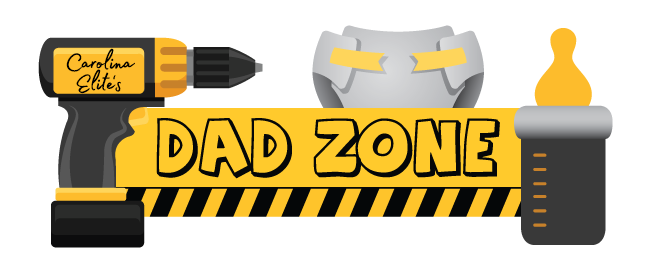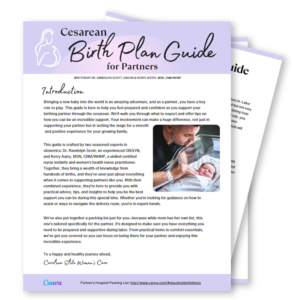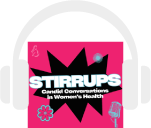
You've got questions.
We've got answers.
With half a dozen kids between them and thousands of births under their belts, our team knows a thing or two about the journey to becoming a parent. Check out their advice on labor, delivery, and postpartum care.
Preparing for Birth
Bringing a new baby into the world is an amazing adventure, and as a partner, you have a key role to play.
 Explore our partner birth guides, created by the seasoned experts in obstetrics at Carolina Elite Women’s Care.
Explore our partner birth guides, created by the seasoned experts in obstetrics at Carolina Elite Women’s Care.
Whether you’re preparing for a c-section or vaginal birth, our guides are here to help you feel prepared and confident as you support your birthing partner.
We’ve even included a handy hospital packing list, tailored just for you, ensuring you’re fully equipped to be supportive during labor.
Labor and Delivery
Labor can be an exciting time for both mom and dad. There are a variety of avoidable push partner errors during labor. Below are frequently heard comments, and several tips to sidestep delivery room mishaps to ensure health and wellness for the entire family!
TIP 1: Time is relatively hers
Every woman’s labor is unique, even from one pregnancy to the next. Sometimes labor is over in a matter of hours. In other cases, labor tests a mother’s physical and emotional stamina. Sorry, birth partners, you won’t know how labor and childbirth will unfold until it happens. Patience is a virtue. Buckle up and hang on for the ride.
During the ride, please do not say the following:
- “How much longer is this going to take?”
- “Wake me up when it’s time for you to push!”
- “Did I get here too late?”
TIP 2: Don't mention food
Women cannot eat while in active labor or for approximately eight hours prior to a scheduled c-section, so please do not ask:
- “Do you mind if I go to the cafeteria?”
- “Can I order in a pizza?”
- “Are you hungry?”
If you must leave, do not leave the room and eat food with strong aromas as you’re likely to return smelling like the juicy cheeseburger you just ate. Labor is the time where you sneak a Snickers bar in the waiting room…far, far away from the possibility that she hears you opening the package.
TIP 3: Hold her hand with caution
Take your ring off, then give her your hand. You have no idea how strong she is in the moment.
TIP 4: Identify your landmarks
Know where the tripping hazards are. For example, the IV pole and birthing ball have sent push partners to the emergency room. Sometimes delivery can take partners by surprise, so when standing, please have a chair behind you at all times. Your pride won’t be the only thing bruised!
TIP 5: Give compliments
The only words that should be uttered during labor:
- “You are (insert any synonym for amazing, i.e. phenomenal, incredible…)”
- “I love you!”
Both of these choices are likely to help you graduate safely to parenthood, and are also appropriate for postpartum care.
TIP 6: There will be blood
Birth is messy. It starts with amniotic fluid as soon as her water breaks, and ends hours later with a baby covered in vernix, (a creamy white substance), and blood. There will be a lot of blood. There might even be poop. Who’s poop? Doesn’t matter. You don’t get to have an opinion about it. Suck it up and hang on for the ride.
Phrases not appreciated:
- “That’s a LOT of blood.”
- “Ewwwwwwww.”
- “What’s that smell?”

Postpartum
The baby's here. You've been moved to a private room with your newest addition. The hard part's over, right? Uh. Not exactly. Here are a few tips that'll help you navigate fatherhood in the hours and days following birth.
TIP 1: Thank a nurse
It’s no secret that nurses are the lifeblood of any hospital. Your partner will likely become attached to these saints, as will you. They have loads of sage advice for new parents, but can also be a huge help for crowd control. Give your nurse a head’s up if your partner, (or you), wants a timer on YOUR mother’s visit, for example. They are happy to bust in and clear the room for vitals, taking the pressure off of the new parents and hurrying your guests along.
Labor and delivery nurses work long, unpredictable hours. If you’re in active labor, chances are they’re going to skip a lunch or dinner break to push right alongside your partner. Want to thank them? They rarely turn down food. Pro tip: Milkshakes from Cookout are never a bad idea.
TIP 2: Bring on the tears
The postpartum hormone drop is considered the single largest sudden hormone change in the shortest amount of time for any human being, at any point of their life cycle.
During pregnancy, estrogen and progesterone increase to very extreme levels. By about three days postpartum, your partner is essentially back to a baseline that is close to non-pregnant. So, those hormones rapidly decreasing can cause huge emotional changes.
In short, even if your partner isn’t traditionally emotional, she’s likely going to cry a lot in the first few days home after birth. Be supportive, but be prepared. This too shall pass.
TIP 3: Breast buddies
Breastfeeding is hard. It can be painful, isolating and unpredictable. The best thing you can do is be supportive — regardless of if she chooses to breastfeed for 1 day or 100 days.
For night feeds, you can bring your baby to your partner in bed. After the feed, take your child for a burp and diaper change, and settle them back to sleep if necessary. This will be a big help to your partner, even if you only do it for a few night feedings.
Be patient if your partner doesn’t feel like being intimate with you. She might feel all ‘touched out’ if she’s feeding, carrying and settling a baby many times a day.
TIP 4: Great expectations
Be prepared for family roles to shift during the first weeks and months with a new baby. Your partner will barely have time for a shower some days, let alone cooking dinner or doing laundry. You’ll earn so many partner points by picking up these household duties yourself. But if that’s not possible, you can always try throwing money at it. Door Dash is never a bad idea.
TIP 5: Let's talk about sex, Baby
Or, NOT. Let’s definitely not talk about postpartum sex until she’s ready. Regardless of how smooth the delivery went, your partner’s body has been through massive change and trauma. Please don’t remind her how long it’s been since you’ve done the deed.
“Okay, but what if she’s interested?” Count your lucky stars! However, it’s best to get clearance from her practitioner at the six-week postpartum appointment before you jump back into vaginal sex. For those who had tears or surgical cuts, sex prior to four weeks postpartum could leave her susceptible to a vaginal infection. If she had a C-section, the same postpartum sex recommendations apply because her incision takes time to heal.
What you SHOULD be talking about are her feelings and emotional state. Four out of five moms experience some change in their emotional health after pregnancy. Up to 20% of postpartum mothers experience postpartum depression (PPD) and 10% experience postpartum anxiety (PPA). There are medications to treat these symptoms that don’t hinder breastfeeding, as well as non-medicine based solutions. The first step is getting her to talk about it, and then encouraging her to speak to her practitioner.

Carolina Elite Women’s Care Podcast
 Stirrups: Candid Conversations in Women’s Health
Stirrups: Candid Conversations in Women’s Health


